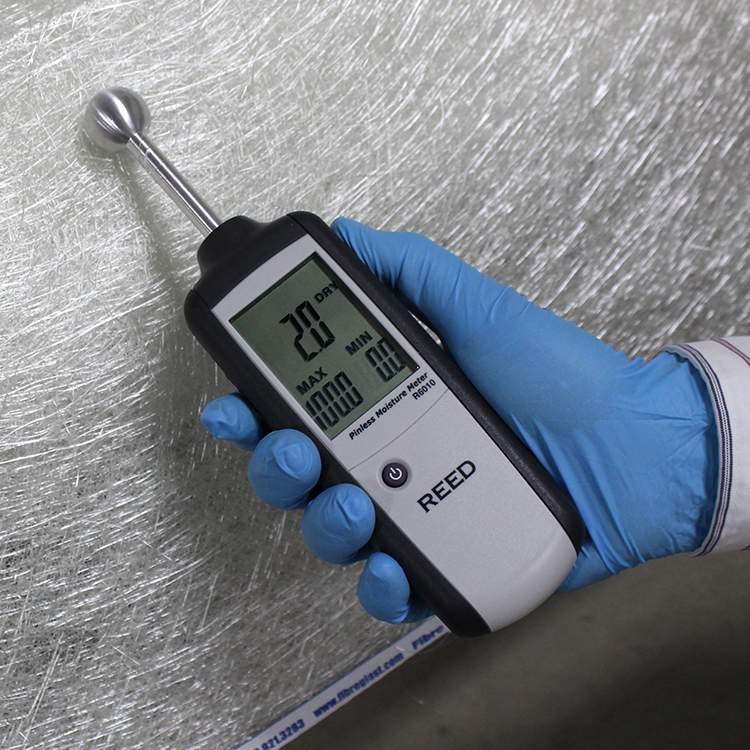Moisture Meter Acquiring Guide: What to Look for in High-Quality Instruments
Moisture Meter Acquiring Guide: What to Look for in High-Quality Instruments
Blog Article
The Ultimate Guide to Moisture Meters: A Comprehensive Summary and How They Can Save You Cash
In the world of structure maintenance, building and construction, and numerous markets, the value of precisely measuring dampness degrees can not be overstated. Moisture meters act as vital tools in spotting and monitoring moisture material in materials, helping in stopping expensive damages and making certain the high quality of products. Recognizing the nuances of different kinds of wetness meters, their applications, and the potential cost-saving advantages they use can be a game-changer for services and specialists alike. Uncovering how these tools can not only simplify processes yet likewise add to monetary cost savings is a journey worth getting started on.
Sorts Of Moisture Meters
One typical kind is the pin-type dampness meter, which gauges the electrical resistance between two pins placed into a product. Pinless moisture meters, on the other hand, use electromagnetic sensing unit plates to scan a larger area without triggering damage to the material's surface.
Infrared moisture meters gauge the thermal buildings of a product to determine its dampness material non-invasively, making them useful for applications where pin or pinless meters might not be appropriate. Understanding the various types of dampness meters offered can help sectors select the most appropriate device for their particular dampness measurement demands.

Benefits of Utilizing Moisture Meters

Furthermore, utilizing moisture meters can lead to boosted energy performance. In agricultural settings, wetness meters play a vital duty in maximizing crop yields by allowing farmers to keep track of soil wetness levels and make informed irrigation decisions.
How to Pick the Right Moisture Meter
Picking the ideal dampness meter involves considering essential aspects such as product compatibility, measurement variety, and calibration accuracy. When picking a moisture meter, it's necessary to make certain that the meter is appropriate for the certain material you will certainly be testing. Different products have differing electrical residential or commercial properties that can influence dampness readings, so picking a meter created for your material is essential for precise outcomes. In addition, take into consideration the measurement series of the dampness meter. Make certain that the meter can spot moisture levels within the array required for your applications. Calibration precision is an additional critical element to bear in mind (Moisture Meter). Go with a moisture meter with trustworthy calibration to make certain exact and regular readings. Some meters might call for routine calibration adjustments, so understanding the calibration process is necessary. By very carefully evaluating these variables, you can select a moisture meter that meets your requirements and offers precise moisture measurements for your jobs.
Proper Techniques for Moisture Meter Usage
To guarantee accurate wetness analyses and optimize the effectiveness of a wetness meter, utilizing proper techniques is necessary. When utilizing a pin-type wetness meter, insert the pins or probes right into the material being examined till they make find more information complete call. By adhering to these correct methods, users can rely on their moisture meter to supply reliable dampness degrees, assisting in stopping pricey damages or making certain top quality in different applications.

Price Cost Savings Through Moisture Meter Applications
How can the critical application of wetness meters lead to substantial price financial savings across numerous markets? Moisture meters play a crucial duty in price financial savings by preventing prospective damage and making sure quality control in various sectors. In the farming sector, wetness meters aid in figuring out the optimal time for harvesting crops, stopping over-drying or excess wetness that can affect the final product's top quality. This exact surveillance aids farmers prevent unnecessary losses and maximize their return.

Furthermore, in the food handling market, wetness meters are vital for keeping track of product quality and making certain conformity with security policies. By accurately gauging dampness material in food products, manufacturers can protect against wasting, preserve quality, and minimize waste, leading to significant price savings. Overall, the critical application of wetness meters is a valuable financial investment that can result in substantial price reductions and boosted effectiveness throughout different sectors.
Final Thought
In final thought, wetness meters are beneficial devices for spotting and determining dampness degrees in numerous products. By making use of the ideal dampness meter and adhering to correct strategies, users can efficiently avoid pricey damages created by excess moisture.
Dampness meters offer as essential devices in identifying and checking moisture web content in products, helping in stopping expensive damages and guaranteeing the quality of items. Infrared dampness meters determine the thermal buildings of a product to identify its moisture content non-invasively, making them valuable for applications where pin or pinless meters might not be appropriate.Moisture meters supply very useful benefits in see here accurately keeping an eye on and evaluating moisture degrees in diverse products and atmospheres. In agricultural setups, moisture meters play a crucial function in optimizing plant yields by making it possible for farmers to keep an eye on soil wetness levels and make notified irrigation choices.In conclusion, wetness meters are valuable devices for determining and detecting wetness degrees in various products.
Report this page